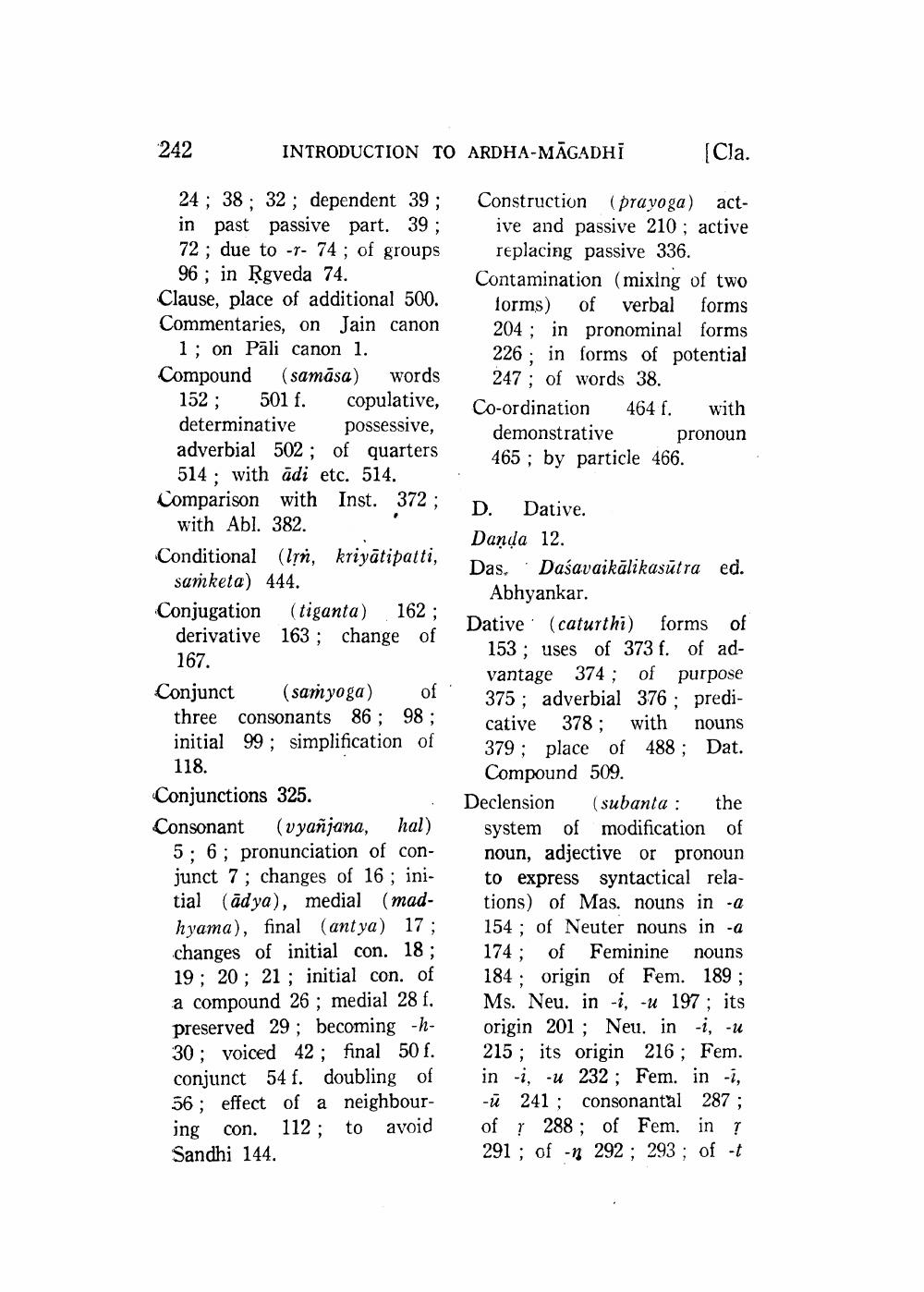________________
242
INTRODUCTION TO ARDHA-MĀGADHI
(Cla.
Construction (prayoga) act
ive and passive 210; active
replacing passive 336. Contamination (mixing of two
forms) of verbal forms 204 ; in pronominal forms 226; in forms of potential
247 ; of words 38. Co-ordination 464 f. with
demonstrative pronoun 465; by particle 466.
24; 38: 32; dependent 39; in past passive part. 39; 72 ; due to -7- 74 ; of groups
96 ; in Rgveda 74. Clause, place of additional 500. Commentaries, on Jain canon
1; on Pali canon 1. Compound (samāsa) words
152; 501 f. copulative, determinative possessive, adverbial 502; of quarters 514 : with adi etc. 514. Comparison with Inst. 372;
with Abl. 382. Conditional (lrn, kriyātipatti,
samketa) 444. Conjugation (tiganta) 162;
derivative 163; change of
167. Conjunct (samyoga) of
three consonants 86; 98; initial 99; simplification of
118. Conjunctions 325. Consonant (vyañjana, hal)
5; 6; pronunciation of conjunct 7; changes of 16; ini. tial (ādya), medial (madhyama), final (antya) 17; changes of initial con. 18; 19; 20; 21; initial con. of a compound 26; medial 28 f. preserved 29; becoming -h30; voiced 42; final 50 f. conjunct 54 f. doubling of 56; effect of a neighbouring con. 112; to avoid Sandhi 144.
D. Dative. Danda 12. Das, Dasavaikālikasūtra ed.
Abhyankar. Dative (caturthi) forms of
153 ; uses of 373 f. of advantage 374 ; of purpose 375; adverbial 376 ; predicative 378; with nouns 379; place of 488; Dat.
Compound 509. Declension (subanta : the
system of modification of noun, adjective or pronoun to express syntactical relations) of Mas. nouns in a 154 ; of Neuter nouns in -a 174 ; of Feminine nouns 184 : origin of Fem. 189; Ms. Neu. in -i, -u 197 ; its origin 201 ; Neu. in -i, -u 215 ; its origin 216 ; Fem. in -i, -u 232; Fem. in -i, -ū 241 ; consonantal 287 ; of ? 288; of Fem. in ? 291 ; of -1 292 ; 293 ; of -t




